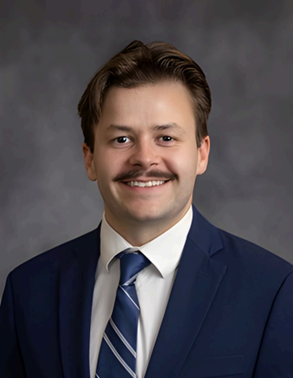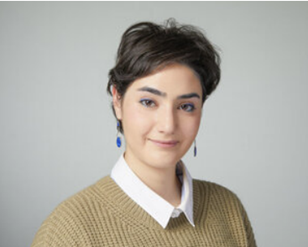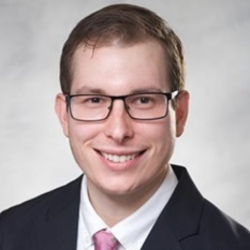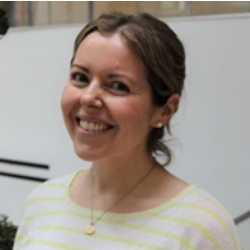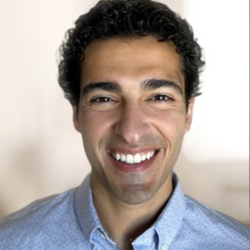
Research Training
We have several options for residents interested in research in the University of Colorado Anschutz School of Medicine Department of Psychiatry. The Pathways Resident Research Track is the most intensive of these options. It is designed for residents who have a strong track record of research successes and are interested in pursuing research as part of their current and future career. Typically, residents in this track intend to apply for NIH funding and/or pursue a post-doctoral fellowship following residency. The track offers the opportunity to conduct research with a primary faculty mentor throughout residency. Successful applicants will have a plan to publish early in the track years (e.g., review paper, use of mentor’s already collected samples), while also developing and running a data collection project (e.g., as an add-on to a mentor’s ongoing project, or a small independent pilot). The track individualized research plan and progress report forms are available via these links (Individualized Research Plan 2024; IRP Scoring Rubric 2024; PR Scoring Rubric 2024; Progress Report Form 2024).
Yunliang Luo
[email protected]
Business Services Manager
Joseph Sakai, MD
[email protected]
(303) 724-7402
The goals of our scholarly program for all residents are to: prepare psychiatrists to critically evaluate the scientific literature and understand the importance of research in driving evidence-based practice; teach residents to apply the basic principles of research to clinical questions they encounter in their practice; encourage residents to develop an area of expertise relevant to their career goals; and, to ensure our residents become psychiatrists who are lifelong learners and scholars, regardless of whether they themselves conduct research post residency.
While some residents do more intensive research through the CU Anschutz Pathways Resident Research Track, all residents will develop and complete a scholarly project with a primary mentor beginning in their PG2 year, and all will be encouraged to participate in the Department's annual poster session, present at a national meeting, and/or submit to a peer-reviewed journal.
During the PG-2 year, all residents receive a specialized curriculum in research methods, QI development, and scholarly writing skills. All PGY-2 residents have a one-month, mentored scholarship rotation to develop and begin implementing a project with a primary mentor. Residents may also choose to dedicate some additional elective time to research/scholarship.
The CU Anschutz Pathways-RRT is a unique track within the Department of Psychiatry at the University of Colorado Anschutz. This track incorporates research experiences and training throughout the PG-2 through PG-4/5 years (depending on whether residents pursue fellowship training in child & adolescent psychiatry). Applicants to the residency program with a strong track record of successful research may apply to the track via a separate MATCH number and may be invited for additional specific interviews for the CU Anschutz Pathways RRT. Those admitted into the CU Anschutz Pathways RRT must complete a research plan in collaboration with their identified primary research mentor by March of their intern year. This track maximizes research time and training concurrently with acquiring clinical competence in psychiatry; its goal is to recruit a diverse group of promising physician scientists and to provide the needed time and support for them to successfully transition to faculty positions and develop prominent future roles in academic psychiatry.
For those who choose the general residency, the research time allotted by PG year is outlined below. This track can lead to one or two more years of funded, full-time research (see the Developmental Psychobiology Research Group T32 Training Program). During the PG-3 and 4 years, Pathways-RRT residents can apply for a small grant for up to $10,000/year to support their research. Through their mentors, residents in the track also have access to the Psychiatry Research Innovations (PRI) program, which is a departmental resource for biostatistics, research operations, clinical research support and research education and training. In the PG2 year, all residents attend the PReMS course (run by Dr. Mikulich) where they learn about study design through review of faculty publications. In the PG3-4 years, CU Anschutz Pathways residents attend the PReIAP course (run by Dr. Mikulich, biostatistician) which utilizes CU Anschutz Pathways resident projects and areas of interest to teach biostatistical principles and study design (e.g., randomization procedures, mediators/moderators in models, useful software packages, displaying study results, etc.) while aiding the residents in improving proposals, presentations, manuscripts and grant applications. Residents attend a monthly research seminar (run by Dr. Sakai) where they have an opportunity to present research results or planned projects to receive peer and faculty feedback. Faculty and guest speakers (suggested by the residents) also present at the research seminar on topics of interest (e.g., presentations by a journal editor discussing an editor’s perspective on manuscript review and the experience of being an editor, and by junior faculty about their course to career development award funding and balancing a research career with family demands). Residents are required to submit a progress report annually – the CU Anschutz Pathways RRT Resident Recruitment, Selection and Evaluation Committee reviews individualized research plans and progress reports in the spring of each academic year and provides written feedback to each resident and primary mentor. Each resident-mentor team meets with the program leadership every fall to review progress, barriers and future plans. The time commitment in the PG3 and 4 years is intended to allow application to the NIH Loan Repayment Program.
Structure for residents in the general program:
| PG 1 | PG 2 | PG 3 | PG 4 | |
|---|---|---|---|---|
| Adult | No time | 2-3 months (17-25%) | 50% effort | 50% effort |
For those who choose to pursue fellowship training in child/adolescent psychiatry, the Pathways-RRT integrates training in psychiatry, child & adolescent psychiatry, and research throughout the PG2 through PG5 years. This track can lead to a 6th year of funded, full-time research (see the Developmental Psychobiology Research Group T32 Training Program). During the CR1 and CR2 years, CU Anschutz Pathways RRT residents can submit a small grant to the track for up to $5,000-10,000/year in funds to support their research. Through their mentors, residents in the track also have access to the Psychiatry Research Innovations (PRI) program, which is a departmental resource for biostatistics, research operations, clinical research support and research education and training. In the PG2 year, all residents attend the PReMS course (run by Dr. Mikulich) where they learn about study design through review of faculty publications. In the PG3 (when available) and CR1-2 years, CU-Pathways residents attend the PReIAP course (run by Dr. Mikulich, biostatistician, see above) and a monthly research seminar (run by Dr. Sakai, see above). CU Anschutz Pathways residents are required to submit a progress report annually – the CU Anschutz Pathways RRT Resident Recruitment, Selection and Evaluation Committee reviews individualized research plans and progress reports in the spring of each academic year and provides written feedback to each resident and primary mentor. Each resident-mentor team meets with the program leadership each fall to review progress, barriers and future plans.
Structure for residents in the child/adolescent psychiatry fellowship:
| PGY 1 | PGY 2 | PGY 3 | CR 1 | CR 2 | |
|---|---|---|---|---|---|
| Child | No time | 2-3 months (17-25%) | 1 day per week (20% effort) | 40% effort | 50% effort |
| CUPathways Resident | Profile |
Travis Wigstrom, MD | Travis Wigstrom, MD spent two years as a research fellow at NIMH following college and graduated last summer from the University of Michigan Medical School. He received a $100,000 impact grant from the Eisenberg Family Depression Center to study the effects of a low glycemic diet on exogenous ketones in bipolar disorder and this grant enabled Dr. Wigstrom to take a research year during medical school. Dr. Wigstrom led study design, obtained funding and implemented the study protocol, which incorporated MR and PET imaging. These experiences solidified his commitment to pursuing an academic career as a physician scientist. Dr. Wigstrom is of partial American Indian heritage. |
Laya Khave, MD | Laya Jalilian-Khave, MD completed a research-focused T32 fellowship under the mentorship of Dr. Marc Potenza at Yale School of Medicine (2022–2024). Her research examines substance use disorder prevention and treatment among youth and adolescents, with a particular focus on implementation science and improving access to care. Only over the past two years, Dr. Jalilian-Khave has authored nine publications and presented her work at national and international conferences. In 2024, she was recognized with a CPDD NIDA Director’s Travel Award, contributed to an Advocacy and Collaborative Grant from the American Academy of Child and Adolescent Psychiatry (AACAP), and was awarded a scholarship to participate in the Training Research Seminar in Child and Adolescent Psychiatry organized by Fondazione Child, the World Psychiatric Association (WPA), and the Italian Society of Psychopathology (SOPSI). She intends to pursue fellowship training in child and adolescent psychiatry. |
Daniel Brook, MD, PhD | Daniel Brook, MD, PhD graduated from the Ohio State University with a PhD in Epidemiology. His research utilizes epidemiological methods to study the effects of expanded buprenorphine access and stigma reduction among rural healthcare providers to reduce the harms associated with mental illness and substance use disorders. |
Ben Hobson MD, PhD | Ben Hobson MD, PhD received his MD from Columbia University Vagelos College of Physicians and Surgeons, as well as a PhD in Neuroscience and Systems Biology. He received an F30 Predoctoral NRSA fellowship (NIH) to support his doctoral research, for which he was awarded the Andrew Mark Lippard Memorial Research Award for Neuroscience (Columbia University) and was a finalist for the Nemko Prize in Cellular or Molecular Neuroscience (Society for Neuroscience). He has research expertise in behavioral neuroscience and cellular/molecular neurobiology, including synaptic flow cytometry, translatomics, single-cell transcriptomics, and proximity-labeling proteomics. During residency he seeks to develop expertise in neurophysiological techniques for temporal analysis of presynaptic release dynamics and post-synaptic responses to neuromodulators. His long-term interests include the neurobiology of psychosis and cellular mechanisms of antipsychotic action. |
Ricardo Villarreal MD, PhD | Ricardo Villarreal MD, PhD completed his undergraduate work at Cornell, and graduated from the University of Colorado Medical School and Medical Scientist Training Program. His research focuses on mood and anxiety disorders and the related consequence of suicide in at-risk populations. He is working with the Brain and Behavior Innovations Center at the School of Medicine to study novel digital-based therapeutic interventions and learn clinical trial design and methodology. He is particularly interested in technological applications to aid in the treatment of psychiatric concerns and in suicide prevention. |
Sorabh Singhal, MD | Sorabh Singhal, MD graduated from the University of Wisconsin and subsequently worked at Epic Systems in Madison, Wisconsin. He later attended the Western Michigan University Homer Stryker M.D. School of Medicine, where he was elected to the Gold Humanism Honor Society and graduated in 2022. Dr. Singhal aspires to become an academic psychiatrist and a researcher specializing in healthcare delivery and disparities. Leveraging his previous experience with electronic health records (EHR), he aims to continue developing his skills as a physician builder during residency. With an emphasis on change management, health equity, and informatics, his research focuses on improving the quality of mental healthcare delivery with an emphasis on equity and outcomes for immigrants and people with a non-English language preference. Dr. Singhal's goal is to refine, implement, and expand EHR-based interventions to better serve these disadvantaged communities. |
Morgan Zipperly MD, PhD | Morgan Zipperly MD, PhD graduated from the Honors College at the College of Charleston in 2013 with a B.S. in Psychology and an interdisciplinary minor in Neuroscience before joining the Medical Scientist Training Program at the University of Alabama at Birmingham (UAB). She received her PhD in Neurobiology in 2020 as part of the Cellular, Molecular, and Developmental Biology theme. During residency she has expanded her research focus to include work on her mentors’ ongoing human clinical trials for addiction utilizing both medication and neuromodulation approaches. She is particularly interested in the clustering of multiple substance use disorders within individuals and development of effective interventions for this group. She hopes to continue her career in academic medicine or industry as a future interventional psychiatrist specializing in addiction.
|
| Recent Graduate | Profile |
|
Dr. Jesse Hinckley | Dr. Jesse Hinckley received a BS in Neuroscience from Brigham Young University in 2005, completed his PhD in Human Molecular Genetics in 2013 and received his MD in 2015. He completed General Psychiatry Residency Training (2018) and Child & Adolescent Psychiatry Fellowship Training (2020) at the University of Colorado Anschutz School of Medicine. Dr. Hinckley was awarded a competitive Colorado Clinical and Translational Sciences Institute pilot award in early 2020. Upon completion of fellowship training, Dr. Hinckley joined the faculty of the Department of Psychiatry at CU Anschutz, continued to develop expertise in adolescent substance use disorders, and received a K12 Award (NIDA-AACAP). As of spring of 2024, Dr. Hinckley had 30 published manuscripts, including in the Journal of the American Academy of Child and Adolescent Psychiatry, American Journal of Psychiatry, and Nature Genetics. |
Dr. Devika Bhatia | Dr. Devika Bhatia graduated from Pomona College (Bachelor of Arts) in 2010 and from Florida International University Herbert Wertheim College of Medicine (Doctor of Medicine) in 2016. She completed General Psychiatry Residency Training (2019) and Child & Adolescent Psychiatry Fellowship (2021) at the University of Colorado Anschutz School of Medicine. Devi realized her passion for research later than some, finding an interest mid-way through residency. After completing a research elective and showing strong productivity, Devi was accepted into the CU Anschutz Pathways RRT in child/adolescent psychiatry fellowship. In residency, Devi published two first-authored and one co-authored manuscript, received the NIDA-AACAP Resident Training Award in Substance Use Disorders and submitted two grant applications. She successfully competed for a 2-year post-doctoral research fellowship position and in 2023 accepted a faculty position as an Assistant Professor. In 2023 she was selected as a participant in the American Academy of Child & Adolescent Psychiatry’s 2023 Research Colloquium for Early Career Investigators and received a CPDD (College on Problems of Drug Dependence) Travel Award for Early Career Investigators. As of spring of 2024, Dr. Bhatia has 13 publications, 8 first authored and 2 senior authored in journals such as the Journal of the American Academy of Child & Adolescent Psychiatry, Pediatrics, and Obstetrics and Gynecology. In June of 2024 her K23 application received a priority score of 18 (1st percentile).
|
Cole Haskins, MD | Cole Haskins, MD, PhD graduated from Dartmouth College with a BA in Human Biology, and the University of Iowa Medical Scientist Training Program (MD/PhD) with a PhD in Epidemiology. His graduate work focused on pharmacoepidemiology, and the interface between mental health and medical comorbidity. While in the CU-Pathways RRT, Cole worked with Dr. Spero Manson (primary mentor) and examined the changes in mental health among urban American Indian and Alaska Native populations during the COVID-19 pandemic drawing upon the Community Organizations for Natives: COVID-19 Epidemiology, Research, Testing, and Services parent study, resulting in multiple publications. Cole presented his work at The Society for the Study of Psychiatry and Culture and the American Psychiatric Association 2024 annual meetings. Following residency, Cole will be working clinically at Denver Health in Psychiatric Emergency Services (PES), with negotiated time for research and a faculty appointment through the University of Colorado Anschutz as an Assistant Professor. |
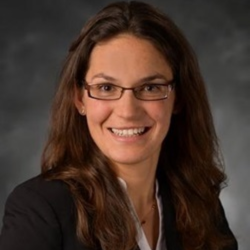 Dr. Zoe Panchal Dr. Zoe Panchal | Dr. Zoe Panchal graduated from Williams College (Bachelor of Arts) in 2013 and the University of Colorado Anschutz School of Medicine in 2020. She developed her interest in research late in medical school, publishing a first-author manuscript and receiving a University of Colorado Anschutz School of Medicine Adler MSA Scholarship Award for her work during that time. Although coming to research later than some, Zoë was accepted into the CU Anschutz Pathways RRT given her passion for research and early track record of successes. Her clinical and research interests focus on sleep pathophysiology in psychiatric illness and circadian and sleep-based clinical interventions for psychiatric illness. Her current work focuses on cannabis use as a sleep aid and with her mentor (Christian Hopfer, MD) she has several manuscripts currently in review on this topic and is conducting a pilot project with small grant funding to better disentangle the potential negative and positive impacts of cannabis use as a sleep aid. She was accepted into a competitive T32 post-doctoral research fellowship position (2024-26), and was appointed as an Instructor-Fellow. Through this position she has developed a clinical program within the CU Medicine Sleep Clinic. She also received an NIH Loan Repayment Program award in the summer of 2024. |
Amanda Glickman, MD | Amanda Glickman, MD attended Rutgers for undergrad, enjoyed a foray into the world of children’s book publishing (a natural progression of any physician scientist’s career), then completed her post-bacc at Columbia and received her MD from the University of Colorado Anschutz School of Medicine. Throughout residency, she worked with Dr. David Bekelman (primary mentor) focusing on design and implementation of pragmatic palliative care clinical trials to improve quality of life for people with serious chronic illnesses. In 2022 she was awarded a travel grant to the Movement Disorders Society International Congress, was an abstract competition winner at the Department of Psychiatry’s Research Day, and was awarded the Randall Ross Resident Research Award from the Department of Psychiatry. Her work was presented at the Academy of Consultation-Liaison Psychiatry annual meeting in November 2023 and the American Academy of Hospice and Palliative Medicine Annual Assembly in March 2024. Dr. Glickman aligned her clinical training with her research interests, creating a new resident elective in the Memory Disorders Clinic and partnering with an outpatient primary care clinic to spearhead an integrated psychiatry consultation program during the 2023-24 academic year. At time of graduation from residency Amanda had 11 publications, 3 first authored. She matched at NYU for fellowship training in Consultation-Liaison Psychiatry.
|
Diab Ali, MD | Diab Ali, MD attended University of Michigan for undergrad, double majoring in Psychology and Neuroscience. He received his MD from the University of Queensland – Ochsner Health System program where he was inducted into the Gold Humanism Honor Society, was an Ochsner Excellence grant recipient, an Ochsner Post Graduate Research Fellowship Award recipient, and an Excellence Award in Psychiatry recipient. In 2020 he received the AMA Student, Resident, and Fellow Impact Challenge, Clinical Informatics and Health Technology Division, and in 2021 was awarded the Leadership Fellowship by the Society for the Study of Psychiatry and Culture. In 2023 he was selected for the NIMH Outstanding Resident Award (ORAP) Honorable Mention, was selected as a participant in both the Exploring a Research Career in Child Adolescent Psychiatry Program and the Educational Outreach Program by the American Academy of Child & Adolescent Psychiatry and received the American Academy of Child & Adolescent Psychiatry 2023 Pilot Research Award for General Psychiatry Residents. Dr. Ali matched in Child & Adolescent Psychiatry Fellowship at Boston Children’s Hospital.
|
Clinical Training Tracks
The Psychotherapy Scholars Track is designed for psychiatry residents who seek advanced psychotherapy training and psychotherapy scholarship during residency and who plan to pursue additional psychotherapy training and practice post-residency. This track builds upon the comprehensive psychotherapy curriculum that is a core component of our residency program and uses elective time to add intensive supervision, reading, and projects. The goals of the Psychotherapy Scholars Track include:
- Advanced knowledge base in psychotherapy theory, literature, and history.
- Clinical competency in five forms of psychotherapy including brief treatment, cognitive behavioral therapy, psychodynamic psychotherapy, group therapy, and family and couples psychotherapy.
- Completion of a scholarly project related to psychotherapy.
The Women’s Reproductive Psychiatry (RP) Track is designed to provide residents with an in-depth exposure to RP during residency training and to support career development within this sub-specialty field. Residents in good standing through the December of their PGY 1 year may apply. As the track begins in PGY 2 year and continues through PGY 4 year, the resident must plan to complete four years of residency training. This track consists of the following components:
Clinical: In the PGY 2 year, residents rotate at a variety of clinical training sites over a one-month period. Potential sites are selected to provide exposure to treatment of women across the reproductive lifespan, and may include the Women’s Behavioral Health outpatient practice, the Women’s Integrated Services for Health (WISH) primary care practice, Women’s Mental Health at the VA, the neonatal intensive care unit (NICU), inpatient obstetrics units, the Young Mother’s Clinic, and the Healthy Expectations mother-infant group therapy program. In PGY 3 and 4 training years, residents will rotate in a diverse array of half-day electives.
Educational: In PGY -2 year, residents in the RP track will attend dedicated weekly didactics specific to RP. PGY 3 residents will complete a variety of didactic mini-series in conjunction with clinical electives. For the PGY 4 year, dedicated didactics will center on the neurobiological basis of sex differences as pertaining to mental health.
Scholarship: Residents completing the Women’s RP Track will pair with a designated faculty member for the planning, initiation, and execution of a scholarly project within RP. Additionally, all residents will be paired with an individual core mentor for additional mentorship, career development, and curricular advisement.
The Community/Public Psychiatry Track is designed to provide interested residents with in-depth exposure to—and training in—the nuances of community psychiatry from years 2 through 4. This track will appeal to those who plan on working in a community or nonprofit/low-profit setting after graduation, treating those individuals who are economically, socially, or otherwise disadvantaged. This track may also appeal to those who would like to do much of their outpatient psychiatry work in an integrated behavioral health clinic (primary care).
Objectives: To provide early exposure to many different types of community psychiatry in multiple locations and to foster career development in these same settings. Foci will include: the treatment of severe mental illness and mental illness in the underinsured; addictions; the interplay of mental health treatment and the legal system; and legislative understanding and action.
Possible sites for rotations:
- Denver Health inpatient psychiatry
- Department of Corrections
- Fort Logan state hospital and Pueblo state hospital
- Denver Health inpatient and outpatient addictions psychiatry
- Denver Health integrated behavioral health clinics (psychiatrists integrated into primary care)
- Stout Street and the Coalition for the Homeless
- Emergency Psychiatry, including mobile crisis unit
- WellPower (formerly the Mental Health Center of Denver; outpatient community treatment of patients who often have Medicaid and live in Denver County)
- Visits to (with some possibility to complete a rotation at) community mental health facilities, intensive outpatient programs, acute treatment units, animal assisted therapies, refugee mental health clinics; asylum seeker psychiatric evaluations; rural locations
Specialized didactics are provided for the residents in the CommPPT. A scholarly project is required, due upon graduation. Time for development of this project is provided in the PGY2 year.
Medical students interested in CommPPT may apply to it specifically, and/or to the University of Colorado School of Medicine general psychiatry residency program. Two positions (of 15) are reserved for these incoming PGY1 residents. If desired, a track resident may fast-track into Child & Adolescent fellowship.
The Combined Child and Adolescent Psychiatry Track allows residents to do both General Psychiatry and Child and Adolescent Psychiatry with ease and continuity while training at the University of Colorado Anschutz. The aim of the track is to train residents matching into psychiatry who have a clear desire to specialize in child and adolescent psychiatry (CAP). Graduates of this 5-year track will be prepared to be excellent clinicians, leaders in the field, and ready to serve the diverse child, adolescent, and adult patients in our communities. Compared to the usual fast-track option that is still available to all residents, this program will provide earlier and enhanced clinical experiences and mentorship to achieve the goals of training excellent child psychiatrists.
The co-directors for this training track are Dr. Anne Penner, Child and Adolescent Psychiatry Fellowship Program Director, and Dr. Robert Davies, General Psychiatry Program Director and Vice Chair for Education.
The general structure of the Combined Child Track will be to incorporate more child experiences, both clinical and career-focused, throughout all five years of training.
PGY-1
- Child Neurology – Combined Child Track residents will do half of their Neurology time at Children’s Hospital Colorado (4 weeks).
- Pediatrics Child Track residents will spend two months at Children’s Hospital Colorado doing inpatient Pediatrics.
- Meet with CAP Training Director to plan individualized plan for mentorship and scholarship
PGY-2
- Child and Adolescent Inpatient and Consult-Liaison on the child and adolescent Inpatient Unit (IPU) and medical services at CHCO, for a total of 4 months at Children’s Hospital Colorado
- Start meeting with CAP mentor if you haven’t already in PGY-1 year.
PGY-3
- Child Outpatient is ½ day per week throughout the year.
- Child Electives and psychotherapy with transition-aged individuals are encouraged.
- Start doing clinical supervision with CAP faculty and continue to meet with mentor.
PGY-4 (first year of fellowship)
- See Fellowship Website for educational experiences
- Continue longitudinal mentorship and research projects
PGY-5 (second year of fellowship)
- See Fellowship Website
- Complete scholarship project and career development
The Career Program is jointly sponsored by the psychiatry residency and its public mental health partners. The objective of the career program is to provide residents with an in-depth exposure to public psychiatry while still in training and to foster career development in community and state mental health systems. Residents enroll in the program at the beginning of the PGY-2 year and are given a leave of absence after the PGY-3 year in order to perform a year of staff service at a public sector mental health facility. Participating residents are paid the standard salary set by the sponsoring institution for the service year; this salary is partly distributed during the training years as a supplement to the regular residency stipend.
Currently, WellPower (formerly Mental Health Center of Denver) is participating in this program.
The WellPower career program was instituted in 1994. During their service year, residents in the Career Program work as a member of a multi-disciplinary team within a full continuum of recovery-oriented services. WellPower serves the City and County of Denver and provides treatment to individuals and families with a wide variety of behavioral health problems: crisis intervention, children and families at risk, persons with schizophrenia, bipolar disorder, depression, and anxiety. WellPower employs over 400 professionals to provide a range of services at 32 sites for more than 7000 people each year. Services include evidence-based and innovative practices such as Assertive Community Treatment, integrated physical health care, and supported employment and housing.
The Psychotherapy Scholars Track is designed for psychiatry residents who seek advanced psychotherapy training and psychotherapy scholarship during residency and who plan to pursue additional psychotherapy training and practice post-residency. This track builds upon the comprehensive psychotherapy curriculum that is a core component of our residency program and uses elective time to add intensive supervision, reading, and projects. The goals of the Psychotherapy Scholars Track include:
- Advanced knowledge base in psychotherapy theory, literature, and history.
- Clinical competency in five forms of psychotherapy including brief treatment, cognitive behavioral therapy, psychodynamic psychotherapy, group therapy, and family and couples psychotherapy.
- Completion of a scholarly project related to psychotherapy.
The Women’s Reproductive Psychiatry (RP) Track is designed to provide residents with an in-depth exposure to RP during residency training and to support career development within this sub-specialty field. Residents in good standing through the December of their PGY 1 year may apply. As the track begins in PGY 2 year and continues through PGY 4 year, the resident must plan to complete four years of residency training. This track consists of the following components:
Clinical: In the PGY 2 year, residents rotate at a variety of clinical training sites over a one-month period. Potential sites are selected to provide exposure to treatment of women across the reproductive lifespan, and may include the Women’s Behavioral Health outpatient practice, the Women’s Integrated Services for Health (WISH) primary care practice, Women’s Mental Health at the VA, the neonatal intensive care unit (NICU), inpatient obstetrics units, the Young Mother’s Clinic, and the Healthy Expectations mother-infant group therapy program. In PGY 3 and 4 training years, residents will rotate in a diverse array of half-day electives.
Educational: In PGY -2 year, residents in the RP track will attend dedicated weekly didactics specific to RP. PGY 3 residents will complete a variety of didactic mini-series in conjunction with clinical electives. For the PGY 4 year, dedicated didactics will center on the neurobiological basis of sex differences as pertaining to mental health.
Scholarship: Residents completing the Women’s RP Track will pair with a designated faculty member for the planning, initiation, and execution of a scholarly project within RP. Additionally, all residents will be paired with an individual core mentor for additional mentorship, career development, and curricular advisement.
The Community/Public Psychiatry Track is designed to provide interested residents with in-depth exposure to—and training in—the nuances of community psychiatry from years 2 through 4. This track will appeal to those who plan on working in a community or nonprofit/low-profit setting after graduation, treating those individuals who are economically, socially, or otherwise disadvantaged. This track may also appeal to those who would like to do much of their outpatient psychiatry work in an integrated behavioral health clinic (primary care).
Objectives: To provide early exposure to many different types of community psychiatry in multiple locations and to foster career development in these same settings. Foci will include: the treatment of severe mental illness and mental illness in the underinsured; addictions; the interplay of mental health treatment and the legal system; and legislative understanding and action.
Possible sites for rotations:
- Denver Health inpatient psychiatry
- Department of Corrections
- Fort Logan state hospital and Pueblo state hospital
- Denver Health inpatient and outpatient addictions psychiatry
- Denver Health integrated behavioral health clinics (psychiatrists integrated into primary care)
- Stout Street and the Coalition for the Homeless
- Emergency Psychiatry, including mobile crisis unit
- WellPower (formerly the Mental Health Center of Denver; outpatient community treatment of patients who often have Medicaid and live in Denver County)
- Visits to (with some possibility to complete a rotation at) community mental health facilities, intensive outpatient programs, acute treatment units, animal assisted therapies, refugee mental health clinics; asylum seeker psychiatric evaluations; rural locations
Specialized didactics are provided for the residents in the CommPPT. A scholarly project is required, due upon graduation. Time for development of this project is provided in the PGY2 year.
Medical students interested in CommPPT may apply to it specifically, and/or to the University of Colorado Anschutz School of Medicine general psychiatry residency program. Two positions (of 15) are reserved for these incoming PGY1 residents. The track lasts for 4 years with most content provided PGY2-4 and thus is not compatible with fast-tracking into a child fellowship after year 3.
The Combined Child and Adolescent Psychiatry Track allows residents to do both General Psychiatry and Child and Adolescent Psychiatry with ease and continuity while training at the University of Colorado. The aim of the track is to train residents matching into psychiatry who have a clear desire to specialize in child and adolescent psychiatry (CAP). Graduates of this 5-year track will be prepared to be excellent clinicians, leaders in the field, and ready to serve the diverse child, adolescent, and adult patients in our communities. Compared to the usual fast-track option that is still available to all residents, this program will provide earlier and enhanced clinical experiences and mentorship to achieve the goals of training excellent child psychiatrists.
The co-directors for this training track are Dr. Anne Penner, Child and Adolescent Psychiatry Fellowship Program Director, and Dr. Robert Davies, General Psychiatry Program Director and Vice Chair for Education.
The general structure of the Combined Child Track will be to incorporate more child experiences, both clinical and career-focused, throughout all five years of training.
PGY-1
- Child Neurology – Combined Child Track residents will do half of their Neurology time at Children’s Hospital Colorado (4 weeks).
- Pediatrics Child Track residents will spend two months at Children’s Hospital Colorado doing inpatient Pediatrics.
- Meet with CAP Training Director to plan individualized plan for mentorship and scholarship
PGY-2
- Child and Adolescent Inpatient and Consult-Liaison on the child and adolescent Inpatient Unit (IPU) and medical services at CHCO, for a total of 4 months at Children’s Hospital Colorado
- Start meeting with CAP mentor if you haven’t already in PGY-1 year.
PGY-3
- Child Outpatient is ½ day per week throughout the year.
- Child Electives and psychotherapy with transition-aged individuals are encouraged.
- Start doing clinical supervision with CAP faculty and continue to meet with mentor.
PGY-4 (first year of fellowship)
- See Fellowship Website for educational experiences
- Continue longitudinal mentorship and research projects
PGY-5 (second year of fellowship)
- See Fellowship Website
- Complete scholarship project and career development
The Career Program is jointly sponsored by the psychiatry residency and its public mental health partners. The objective of the career program is to provide residents with an in-depth exposure to public psychiatry while still in training and to foster career development in community and state mental health systems. Residents enroll in the program at the beginning of the PGY-2 year and are given a leave of absence after the PGY-3 year in order to perform a year of staff service at a public sector mental health facility. Participating residents are paid the standard salary set by the sponsoring institution for the service year; this salary is partly distributed during the training years as a supplement to the regular residency stipend.
Currently, WellPower (formerly Mental Health Center of Denver) is participating in this program.
The WellPower career program was instituted in 1994. During their service year, residents in the Career Program work as a member of a multi-disciplinary team within a full continuum of recovery-oriented services. WellPower serves the City and County of Denver and provides treatment to individuals and families with a wide variety of behavioral health problems: crisis intervention, children and families at risk, persons with schizophrenia, bipolar disorder, depression, and anxiety. WellPower employs over 400 professionals to provide a range of services at 32 sites for more than 7000 people each year. Services include evidence-based and innovative practices such as Assertive Community Treatment, integrated physical health care, and supported employment and housing.
Contact Us
Department of Psychiatry Residency
1890 N Revere Ct, F546
AHSB, Suite 4100, Rm 4102
Aurora, CO 80045
Phone: (303) 724-6021
Sara Dillard
Program Coordinator
Phone: (303) 724-6019
Email: Sara Dillard
Kimberly Kelsay, MD
Program Director
Phone: (303) 724-6021
Email: Kimberly Kelsay
